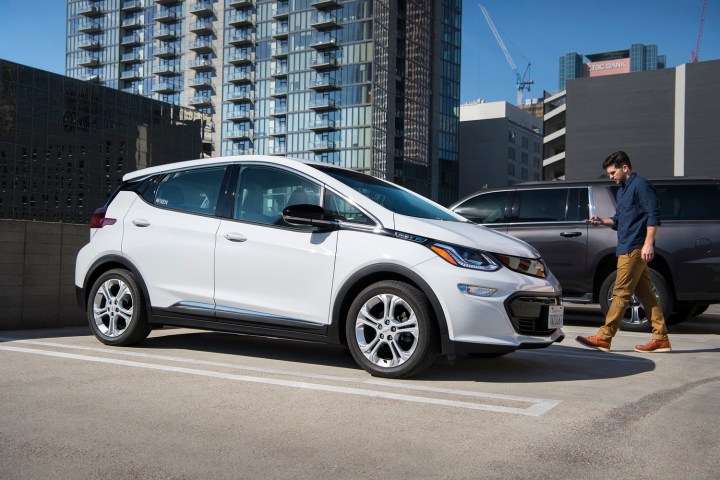
Maven is adding 100 Bolt EVs in the Los Angeles area, and expects them to be capable of covering 250,000 all-electric miles per month once the fleet is fully deployed. The electric Chevys will be used for both car sharing and Maven’s Lyft Express Drive program, which provides low-cost weekly car rentals to Lyft drivers. GM invested $500 million in Lyft last year.
To support the Bolt EV, Maven is working to expand the network of charging stations in the L.A. area. It plans to work with the Los Angeles Department of Water & Power and utilities on infrastructure projects. GM has no apparent plans to undertake a broader charging-infrastructure program to support the Bolt EVs it plans to sell to individuals. In the meantime, Maven Bolt EV drivers will get a limited amount of free charging at stations on the EVgo network.
Following the L.A. rollout, Maven plans to make the Bolt EV available in San Francisco and San Diego as well. It also wants to collaborate with different cities on other projects “including a fully electric autonomous network of vehicles tied to mass transportation stations.” The Bolt EV is already GM’s main testbed for autonomous driving. The automaker’s Cruise Automation subsidiary is testing the autonomous prototypes in California and Arizona, while GM itself tests in Michigan.
Launched in January 2016, Maven now operates in 17 cities in the U.S. and Canada. GM says the brand has more than 24,000 members, who have driven more than 78 million miles in shared vehicles. Car-sharing users reserve and unlock cars using an app, and pay a membership fee for access.
GM isn’t alone in trying to capitalize on sharing services. Daimler, the parent of Mercedes-Benz and Smart, has operated its Car2Go service for years, and BMW recently returned to U.S. car sharing, after a brief absence, with ReachNow. While sharing services represent a potential threat to car sales, they also represent an opportunity for automakers to attain a new source of revenue by operating said services themselves.


